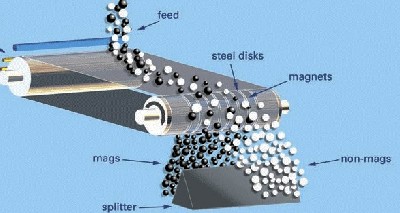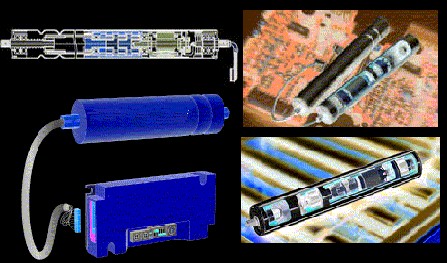|
|
|
| BROCHURES | |
|
T The capacity of a magnet to lift a paramagnetic mineral is dependent not only on the value of the field intensity, but also on the gradient of field, which is the rate at which the field intensity increases towards the magnet surface. The force on the paramagnetic particle is F = µ H dH/ dt where H is the field intensity, and dH/dt is the field gradient. Production of a high field gradient as well as high intensity is therefore an important aspect of separator design. The high magnetic field gradient must be considered taking into account the dimension of the particle and its localization. The mean particles localisation is then an important parameter for the design to increase the gradient inside the particles.
|
|
| Capacity & dimension | High magnetic field & gradient |
|
3 DRUMS DRY MAGNETIC SEPARATOR Conveyor width : 600mm Feed flow : 1 to 5 t/hour Conveyor speed : from 0 to 15m/min Shipping dimensions : 950 * 600 * 700 Weight : 95kg
|
The magnetic field is very strong by the use of very large Neodymium magnets of maximum magnetic susceptibility (N52). The gradient is made maximum in the volume of influence of the magnetic poles by the particular arrangment of the magnets.
|
| 3 levels of paramagnetic selection | |
|
The paramagnetic particles are selected by 3 magnetic drums. The 2 first magnetic drums turn at the same linear speed as the particles, moving on the principal conveyor. The magnetic particles jump on the magnetic drum and are drived over the module on a second conveyor. The paramagnetic particles are extracted from the layer of particles at the same speed and the same direction to facilitate their transfer. The gap between the magnetic drum and the particles can than be adjusted at the minimum distance (contrary in cross-belt separators). Those magnetic drums and their conveyor are built as individual module. The assembly of the module on pivot makes it possible to rise if a particle larger than the gap were to be presented. This characteristic makes it possible to at least regulate the air-gap without any risk. The magnetic particles pulled on the small conveyor above the main one are ejected in a vibrating conveyor which evacuates them. The first two magnetic drums can to carry out two different separations, that is to say two paramagnetic separations of different susceptibility or a first selection reserved to ferromagnetic minerals. The third magnetic drum makes it possible to collect the mixed particles which would present the magnetic part on the side opposite of the preceding magnetic drums.
|
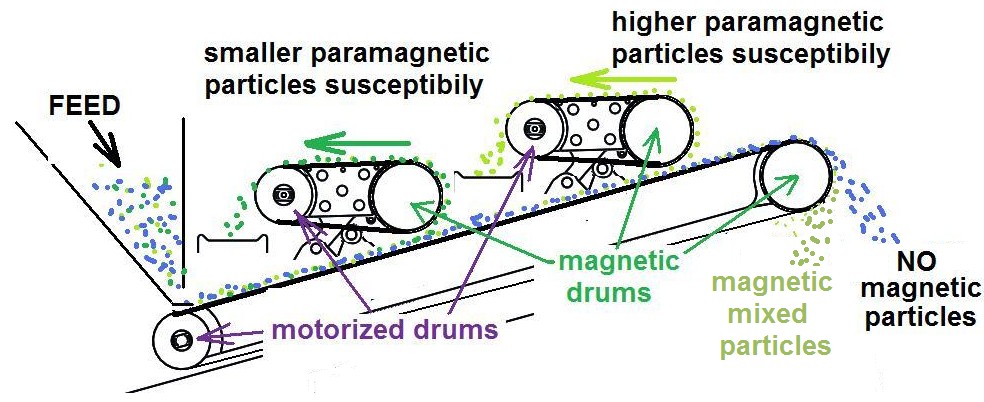
|
| RELIABILITY | BELT |
|
Brushless motorized drums The magnetic separator is powered by 3 brushless motorized drums. Their rotation speed is controled by electronic drivers and one potentiometer. The protection is IP65 The power needed is less than 150W at 24CCV
|
The bands of the conveyer
represent an important component in the design of the separator since
being between the particles and the magnets. Indeed, the force of adhesion
of the particles is an opposite function of the square of the distance
which it is thus important to minimize.
|
|
|
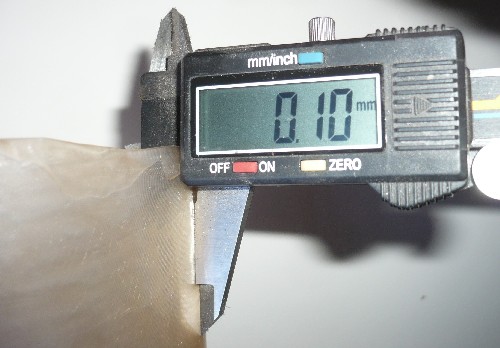 |
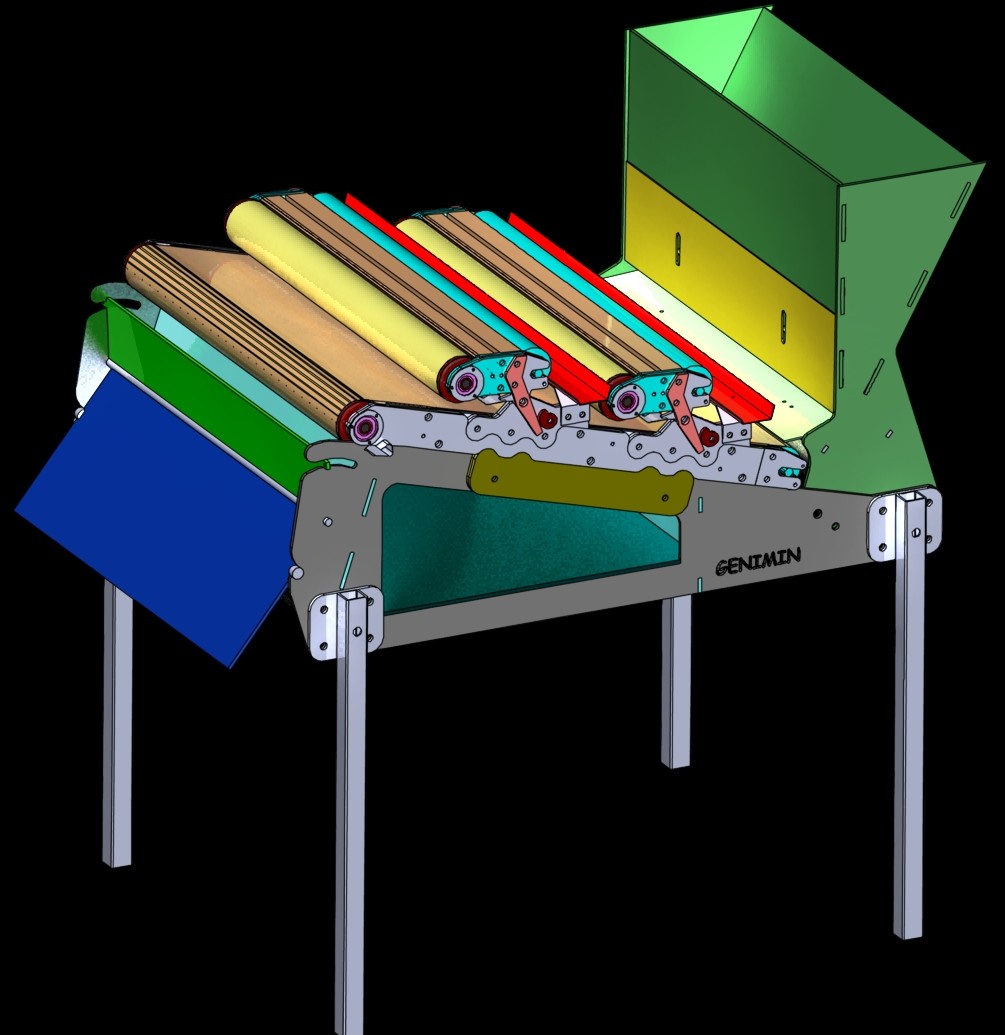 |
|
|
Modular construction The modular construction makes easy the change of belt. Few minutes are needed to change them. The availability ratio can than be maximal.
|
|
|
|
|

